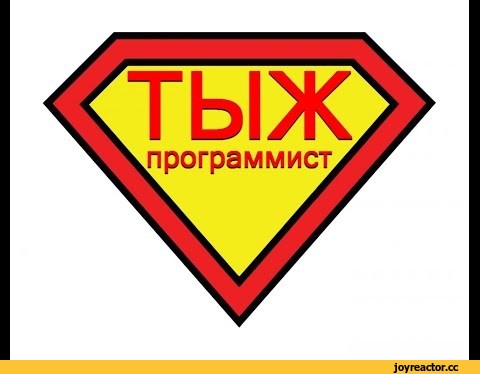When it is harmful for the developer to combine software programming and technical support

Image of easywebstudio.ru website
Surely, most readers had to hear complaints from programmers about how much they do not like to perform the functions of technical support. In many companies, they still have to do it. Sometimes these requirements are written in the text of vacancies. However, it is not uncommon for new responsibilities to fall on a developer after his employment.
Anyway, the prospect of combining technical support and software development pleases not all programmers. The work of a technical support specialist is often a serious challenge for the developer’s nerves. Moreover, such a combination often affects its effectiveness. The brain takes time to switch from one activity to another. For many programmers, this means a few lost hours, which are spent on returning from the world of people to the world of algorithms and coding. And unsuccessful communication with an angry user at all can knock some developers out of a rut for the whole day.
')
Strange as it may seem, one of the reasons why programmers left the company could be precisely the need to combine technical support with development. In one of the companies, for example, a kind of “duty” was introduced for developers: each had to work out in support a certain number of hours per week. The situation was aggravated by the fact that this was not done every day, and the developer’s psyche did not have time to develop a stable habit. As one of the employees of this company told, each duty turned into serving a heavy duty.
Perhaps a situation where a specialist combines support and development on a daily basis may seem less painful to someone. But in general, this does not change the essence: you have to perform additional, often unpleasant, work to the detriment of the main one.

Site image stihi.ru
Another way to the said combination is, oddly enough, a boost. When a developer is promoted to the proud title of “lead programmer,” support may also be among his new responsibilities. At least, this is the way of some companies. To top it all off, this person becomes an unofficial "help desk" for junior programmers.
Most employees who complain about such a combination, argue it not only personal dislike to work with people, but also the lack of the necessary qualifications. If a person is not given such abilities from nature, then without special training, work in this position really causes stress.
Moreover, the results of this specialist in the field of development in this case will also begin to decline, which will lead to overwork, and possibly to a more nervous situation in the whole team. In addition, the part-time developer does not have enough time for personal self-development in terms of programming and learning new technologies. This threatens to lower the cost of this specialist in the labor market and also makes him less useful to the company.
The management admits such situations, in particular, because it does not take technical support seriously enough. Two extremes are common on the territory of the CIS - in support there are people who can communicate but do not have knowledge in the subject area; The support is provided by qualified specialists who do not know how to properly build communication with angry users.
Of course, technical support is the same specialty as the others. But often this obvious fact is neglected, hoping in this way to save money, or simply underestimating the role of support in their business.

Image website alexandrgilenko.com
But even those who try to pay attention to technical support do not want the same thing: someone needs polite communication and psychological help, and someone believes that efficiency and speed of solving a specific user problem are primary. The latter even claim that the former confuse technical support with a “hotline”.
Thus, in each company priorities are lined up in different ways. In the case when technical support is also an active engine of marketing strategy, it is unlikely to benefit from the participation of the product developer. Suppose he knows the subject area better than anyone, but in this situation other knowledge and skills are needed. Then, even developers who are eager to work in support, are unlikely to be of great benefit.
But if technical support is designed to quickly solve specific user problems, then the developer, if desired (this should be emphasized), can move mountains in this field.
In order not to oppose different types of support, we note the obvious fact: they often coexist. But, again, for various reasons, not everyone is able to harmoniously develop these areas. In addition, depending on the financial situation of the company, management may focus on one or another type of support, saving on others.
But if the developer still became a hostage to such an “optimization” of the company's business processes and the heavy burden of technical support fell on him, he still has hope for salvation.

Site image videoforme.ru
If e-mail, specialized helpdesk systems, chat rooms and social networks are used as tools, then it will be much easier for most programmers to get started. Moreover, if both the user and the developer are able to coherently express their thoughts in writing, they will quickly find a solution to the problem. After all, the written request will be visible details that can be useful for solving the problem.
Oral communication cannot guarantee that critical details will not be missed. Not to mention the fact that often the user is still forced to send screenshots or videos, because in words it is much more difficult to describe the problem.
Having “accustomed” clients to written communication, the company can hope that the developer-support will save his nerves, will be able to quickly switch between the two types of activity. To do this, it is enough to organize your work in such a way that the users' letters are processed at a convenient time, without interrupting the course of the deep thoughts of the programmer and his entire development process.

Site image journal.ib-bank.ru
If you look at it without unnecessary drama, you can get used to many things. We are talking only about how it would be more efficient to use the resources of the company and the personal resources of each employee. If the support functions are hung on the developer forcibly, there is no guarantee that in a month he will not find another job. And if he is also a good developer, then his care may cost the company more than additional hiring of specialist support at half-time.
There are many options for the development of events. Not all developers are equally useful. Some programmers, on the contrary, go to tech support with their heads. Someone, it turns out, is equally good both in development and in support. Therefore, no one calls to think stereotypically, but attention to the general trends and feedback from employees has not hurt anyone.
The number of company resources is always limited, but usually they can somehow be combined, shuffled, finding the most effective interaction schemes. In other words, it may well turn out that it is better in a given company not to entrust the support functions to the developer, but to delegate to another specialist.
It often happens that the work of technical support can be organically combined by a software testing specialist. In general, the success of this approach shows us practice. The tester knows the software product, its bottlenecks and interacts with it from the user's point of view. Most often, this specialist knows best how to get around these bottlenecks, he will be able to prompt the user and the nuances of working with the product. Tester’s “pumped” attention to detail will be most welcome when analyzing user complaints and inquiries.
In one company it was observed to observe how the system administrator was engaged in technical support. He did an excellent job with this. Sometimes there were even doubts as to which of the two roles he looked better.
And in some cases, the technical support is better to attract a project manager. Especially when the support is not “too technical” - such where communication and the achievement of some agreements are more important.
Such reasoning about the "shuffling" of personnel is relevant, rather, for small companies, or for large but thrifty firms. In addition, as you know, a clear separation of powers should not be expected from startups, where each employee may well perform several functions.
PS
In fairness, we note that history knows far fewer cases of the involvement of support specialists in programming. However, it is certain that some of them would not mind. Separately, it is worth mentioning the companies involved in 1C-development. There really is a common transition scheme from consultants to programmers. Of course, after appropriate training. Well, the work of a consultant is perceived by ambitious personalities as a learning stage.
And on average in the hospital, with great difficulty, you can find complaints (if they exist at all) about forcing the support staff to programming.

Image site joyreactor.cc
Pss
“You are a programmer” - this phrase has long become a meme. Anyway, each ITshnik periodically provides technical support to their relatives, friends, friends of friends, and so on. Sometimes this is done for free or for the "chocolate" and sometimes causes irritation when this happens too often. So, if suddenly at work they are offered to do this kind of thing on an ongoing basis, many “tyzh-programmers” have accumulated negative.
Source: https://habr.com/ru/post/306120/
All Articles